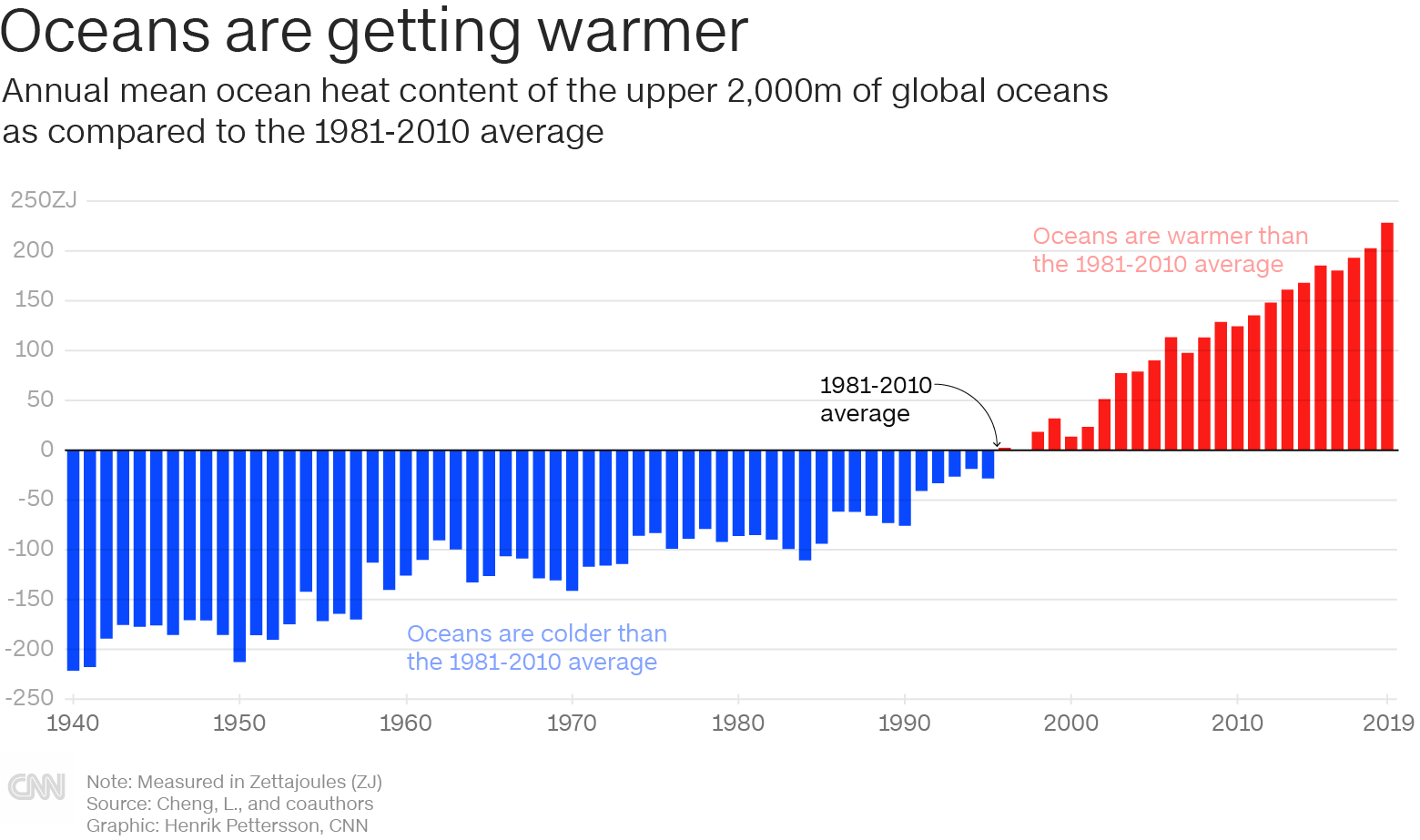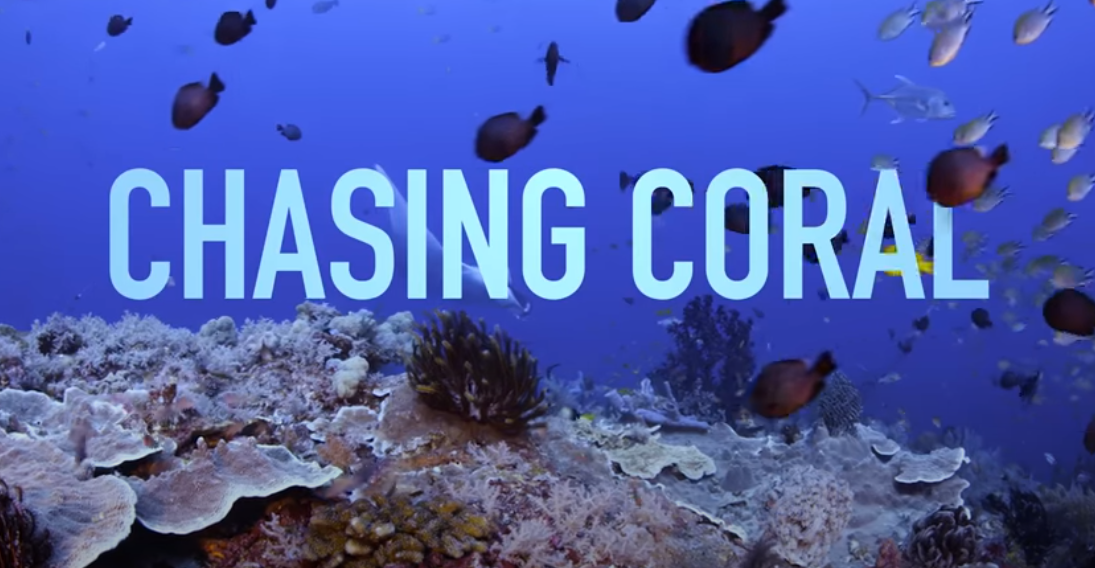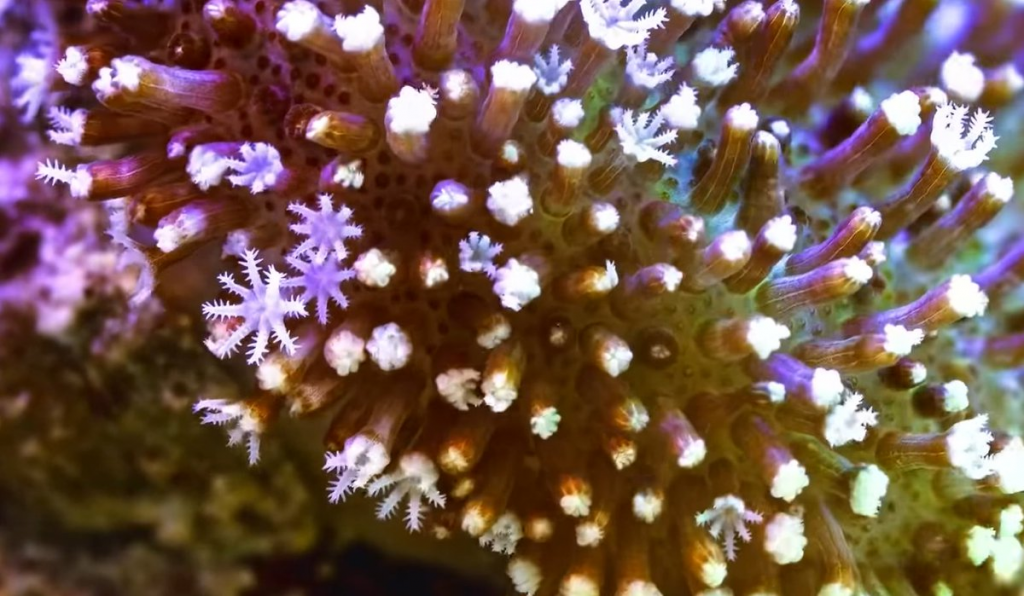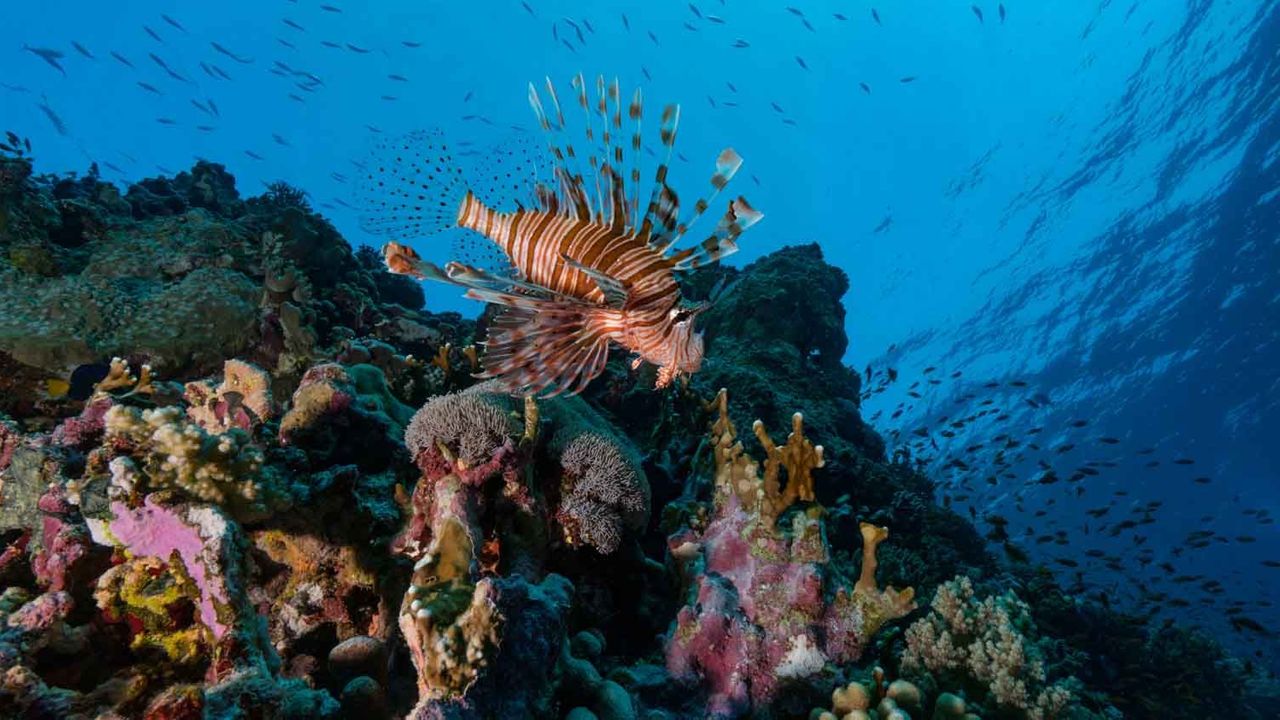Updated on 2022-11-08 by Adam Hardy
Coral reefs worldwide have been hit hard over the last few years, but they are far from lost. The survival of these amazing ecosystems will be the real test of whether humanity can get a grip on climate change.
People don’t realise how our oceans dominate the planet. The oceans absorb 90% of the heat trapped by greenhouse gases and without the oceans, global warming would be far, far worse than it is. To put it in numbers, if we wanted to achieve today’s rate of ocean warming by any other means, it would require the continuous detonation of 5 Hiroshima atom bombs per second.

Absorbing so much of the heat trapped in the atmosphere and ameliorating the effect of so much CO2 has obviously been massively beneficial to society, but the heat doesn’t just disappear, despite the oceans being such a huge heat sink. It is slowly making itself apparent and coral reefs are one of the places where the damage is most visible and shocking. Coral faces a double whammy – global warming causes ocean heat waves which bleach them, and the rising concentration of CO2 in the oceans makes the water more acidic, making it more difficult for the corals to lay down their hard carbonate skeletons.
The feature-length documentary Chasing Coral captured the urgency, poignancy and dangers of the situation with striking time-lapse visual imagery showing coral bleaching as it happened in 2017.

Beyond the pure wonder and beauty of intact coral ecosystems, coral reefs play a major role providing ecological services to humanity:
- along with mangroves, preventing coastal erosion and providing protection against storms, hurricanes and tsunamis
- supporting millions of people in local fishing towns and villages
- being nurseries to many open-water fisheries which would collapse without their supporting reefs
- supporting tourism and sports industries
- harbouring untold genetic and biochemical riches that provide a stream of new medicines and pharmaceutical products
There are a lot of people – scientists, fisheries experts, local people – who believe this will all be lost and that coral reefs are doomed to extinction. It does look bad.
Coral Reefs as the situation stands in 2020
The world has lost 50% of its coral reefs already and without drastic, radical action now, we could lose what’s left. In one of the “best case” scenarios, global warming is set to peak at over 1.5°C (2.7°F) and somehow, somewhere, we find the technology and resources bring it back down again. Even in this scenario, Australia may lose all but a few remnants of the Great Barrier Reef, but there is significant hope that most coral reefs species will survive. What can be done to maximise these chances?
- A lot of damage happens that is non-climate change-related: pollution from agricultural run-off, overfishing, coastal development, sedimentation from mining operations, plastic pollution… Stopping these gives corals a much better chance at survival.
- Some scientists suggest techno-fixes – a bit like putting insulating covers on glaciers. ‘Snow machine like cannons’ (in the Independent) could brighten clouds and halt Great Barrier Reef bleaching
- ‘Killer robots to battle crown-of-thorns starfish plague’ (News.com.au) should halt the advance of coral-munching starfish on the Great Barrier Reef
- ‘Supercorals of the Red Sea’ (bbc.co.uk) have a natural tendency to tolerate the heat and could provide a heat-resistance gene.
- And there are further solutions which are more and more unlikely.
But assuming the world does its bit in reducing CO2 emissions, the best hope lies with some areas on the planet that won’t be affected as much by global warming as elsewhere. There are coral reefs in Indonesia, the Philippines, Cuba, Fiji, Tanzania, the Solomon Islands, and Madagascar where either local climatic conditions or ocean currents and upwellings keep the effects of global warming in check. But these places are not Australia where strong conservation laws protect the local reefs: there are many issues that threaten the reefs besides global warming (listed earlier).
That’s why the WWF, the Wildlife Conservation Society, Rare, CARE International, Blue Ventures, Vulcan Inc., and the University of Queensland Australia have come together to form the ‘Coral Reef Rescue Initiative’ to focus on helping local populations in these critical coral regions to find ways to protect and nurture their coral reefs instead of overexploiting them. If local people treasure these coral reefs and build local economies which are sustainable and resilient, these reefs will survive.
So in the future of 2100 when hopefully the climate crisis is being managed and those Paris Climate Accord targets are met, these surviving corals will breed, send their eggs into the open oceans, and recolonise old areas. It is a damage limitation and repair operation for sure, but all is not lost and action and hard work now can prevent coral reefs from becoming the vanguard of a widely feared mass extinction event.
My motivation for writing this article came from watching the documentary Chasing Coral. Surely everyone loves coral reefs like I do? My quick survey (appalling survey methodology aside) backed up the idea.
It occurred to me while watching Chasing Coral that this should be the flag-bearing issue to prompt people into taking action on the climate. But what can we do aside from trusting the government to hit the Net Zero 2050 targets, or should we give all our money to charity?
- The first and obvious thing if you are lucky enough to visit a coral reef is to make sure the tourism is green and sustainably managed.
- At home, watch where your seafood comes from: are those tiger prawns from sustainable fish farms? Many fish farms in the Tropics are built on mangroves and lagoons that directly impact the neighbouring reefs.
- More importantly, do something about climate change – talk about these issues with others who you know are concerned and don’t let it slip from your mind
- Ask your politicians what they are doing about it (and don’t stand for greenwash)
- Reduce your own carbon footprint – try carbon rationing and support EcoCore in promoting it.




One reply on “Coral Reefs”
More on Red Sea corals https://www.theguardian.com/science/2020/jul/21/heat-resistant-corals-offer-hope-as-climate-crisis-warms-up-oceans